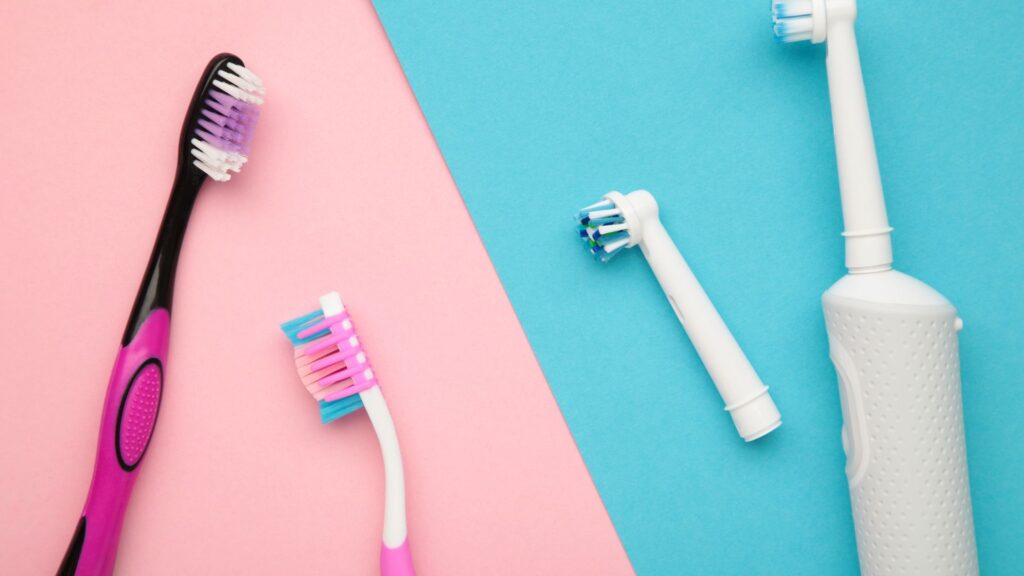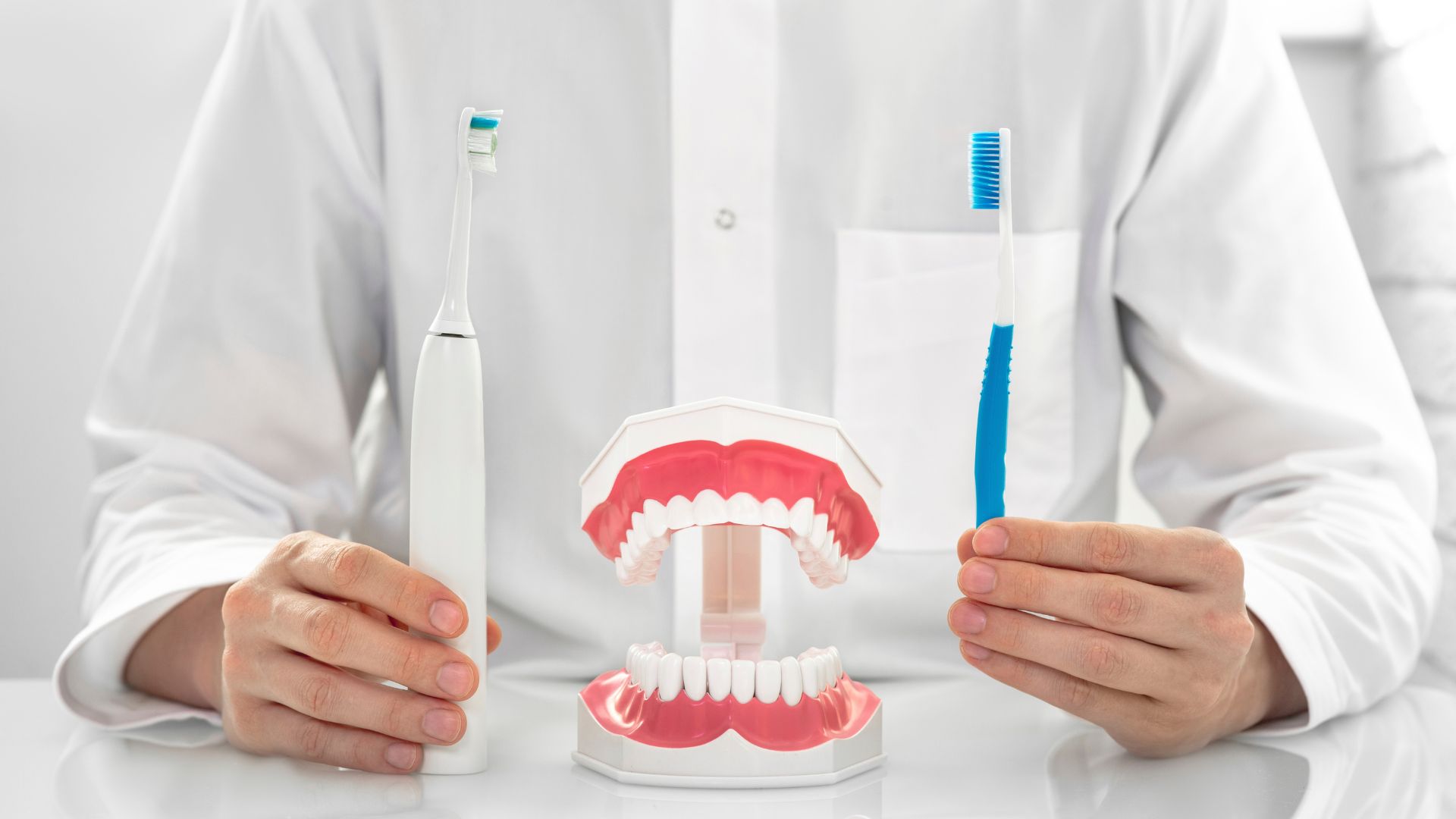Brushing your teeth is an essential habit for maintaining good oral health. But with so many options available today, choosing between a manual toothbrush and an electric one can feel confusing. Both have their benefits, and the right choice often depends on your personal needs, comfort, and budget.
In this article, we’ll explore the pros and cons of both types of toothbrushes and help you decide which one is best for your daily oral care routine.
What Is a Manual Toothbrush?
A manual toothbrush is the traditional brush that most people have used since childhood. It typically has a plastic handle and bristles at the head. You control all the motion—up and down, side to side—while brushing.
Manual toothbrushes are affordable, easy to find, and don’t require batteries or charging. They allow you to control how much pressure you apply, which is especially useful if you have sensitive gums or dental restorations.
People who travel often, prefer a simple routine or are on a tight budget may find manual toothbrushes more convenient.
What Is an Electric Toothbrush?
Electric toothbrushes have built-in motors that automatically move the bristles in oscillating, vibrating, or sonic patterns. This motion helps clean teeth more efficiently, especially in hard-to-reach areas.
Many electric toothbrushes come with extra features like:
- Built-in timers to help brush for the recommended two minutes
- Pressure sensors to avoid brushing too hard
- Multiple brushing modes for sensitive teeth or deep cleaning
They are handy for people who struggle with proper brushing technique, have limited hand mobility, or wear braces. However, they can be more expensive, need regular charging or battery changes, and replacement brush heads may not be readily available everywhere in India.
Manual vs Electric Toothbrush: Key Differences
To help you compare both options more clearly, here’s a detailed breakdown of their key differences:
|
Feature |
Manual Toothbrush |
Electric Toothbrush |
| Cleaning Efficiency | Depends on technique | Slightly better on average |
| User Effort | Fully manual | Motorized motion assists |
| Cost | ₹20–₹100 | ₹300–₹5,000+ |
| Portability | Highly portable | Bulkier, needs charging |
| Ideal For | Everyday use, budget users | Elderly, braces, gum problems |
| Replacement Frequency | 3–4 months | Head every 3–4 months |
| Eco-Friendliness | Lower waste (biodegradable) | Higher (unless recyclable) |
What Do Studies and Dentists Say?
A 2014 Cochrane review of 56 studies concluded that electric toothbrushes reduce plaque by 21% and gingivitis by 11% after three months compared to manual ones. — Cochrane Oral Health Group
These findings suggest that while electric toothbrushes may offer some advantage in reducing plaque and gum inflammation, the most important factor remains your brushing habits. Consistency, technique, and using a brush suited to your needs matter more than whether it’s electric or manual.
How to Choose the Right Toothbrush for You
Your choice should depend on your oral health needs, lifestyle, and comfort. If you have healthy teeth and gums, an appropriately used manual toothbrush can be very helpful. Choose one with soft bristles and replace it every three to four months.
An electric toothbrush might offer more effective cleaning with less effort for people with sensitive gums, braces, arthritis, or difficulty reaching back teeth.
Children may benefit from electric toothbrushes that make brushing more engaging. However, always supervise younger kids and ensure they’re using age-appropriate models.
Replace your toothbrush or brush head every three to four months, or sooner if the bristles are frayed. — Ministry of Health and Family Welfare, India
Environmental and Cost Considerations
Manual brushes are generally more eco-friendly, especially if you choose biodegradable options made from bamboo or recycled plastic. Electric toothbrushes require batteries or charging and generate more waste due to plastic heads and electronic components. However, some brands now offer recycling programs to reduce their impact.
While electric toothbrushes may have a higher upfront cost, some users find them a worthwhile investment for improving their brushing habits and reducing future dental issues.
Electric toothbrushes may benefit people with limited mobility, such as arthritis patients. — American Dental Association (ADA), adapted for Indian readers
FAQs
Are electric toothbrushes better than manual ones?
Electric toothbrushes may remove more plaque in certain cases, but the most important factor is brushing properly and consistently. A manual toothbrush, when used with correct technique, can be just as effective for daily dental care.
Is an electric toothbrush safe for sensitive teeth?
Yes, most electric toothbrushes have soft-bristle options or gentle cleaning modes. These features help reduce discomfort for sensitive teeth. However, it’s best to check with your dentist before switching, especially if you have existing gum or enamel issues.
How often should I replace my toothbrush or brush head?
Replace your toothbrush or brush head every 3–4 months. If the bristles are frayed or you’ve recently recovered from an illness, it’s best to replace it sooner to maintain hygiene and effective cleaning performance.
Can children use electric toothbrushes?
Yes, electric toothbrushes designed for children are available with smaller heads and softer bristles. When used under adult supervision, they can help kids develop better brushing habits through timers, music, or visual aids that make brushing fun.
Do electric toothbrushes cause less damage to gums?
Electric brushes with pressure sensors can help prevent over-brushing, which may reduce gum irritation. They maintain consistent motion and avoid excessive force, making them useful for people who tend to brush too hard with manual brushes.
Are electric toothbrushes worth the price in India?
Electric toothbrushes can be a good option for people with special dental needs or limited dexterity. However, a good-quality manual toothbrush used correctly remains a reliable and cost-effective choice for maintaining oral hygiene in most cases.
Conclusion
If used properly, both manual and electric toothbrushes can support a healthy oral routine. The best brush is the one you’ll use consistently and correctly. While electric options can offer extra features and ease, manual brushes remain a reliable choice for many.
If you’re unsure which option is right for your needs—or if you’re preparing for procedures like dental implants in Mira Road—our dental professional at Family Dental Clinic is happy to guide you. We focus on helping you build long-term habits that support healthy teeth and gums.
Sources and References
- Indian Dental Association – Oral Hygiene Guidelines
- Cochrane Oral Health Review – Electric vs Manual Toothbrushes
- Ministry of Health and Family Welfare, India
- World Health Organization – Oral Health








